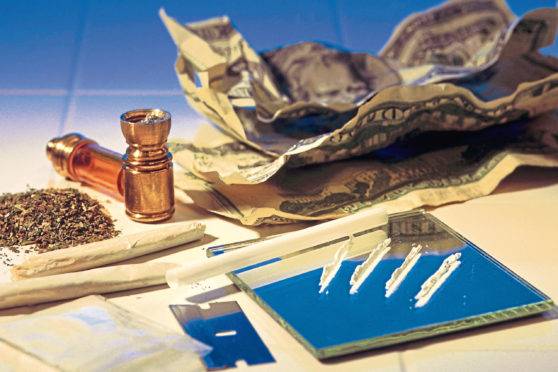After hearing about the number of drug-related deaths for the month of March, I feel I must respond.
We have in Scotland the highest rate of drug deaths in Europe. The government set up a drug death task force last year on the prefix of looking at what we could do to tackle this. As per usual all we have had is talk and more talk, over-complicating things. I am aware this is a complex area, however, these are lives we are talking about – we have seen deaths rise every year.
My son died 21 years ago of an overdose and it saddens and angers me that we have seen little or no improvement. And no, my son didn’t deserve to die – he was ill and wasn’t afforded the treatment he should have had.
We need a radical change in how we deal with those affected by addiction. The moral model of addiction is partially responsible for stigmatising those using drugs. It considers drug use a choice, and a bad one, the person using drugs is seen as weak, lazy and selfish, and this has been inherent in services and the public domain. Those suffering addictions are seen as deserving of the treatment meted out to them.
We need to look at the person affected and treat the cause – people start to heal the moment they feel they are heard. We are still punishing an already marginalised population who have been told they are worthless and not deserving of help.
Our drug laws are antiquated and not fit for purpose. To criminalise somebody who is ill is a crime in itself. Our prisons are full of people with drug problems combined with physical and mental illness –is this really the best use of resources? I think not.
Addiction is a family disease – one person may use but the whole family suffers. Families need to know that they are not powerless, that they have a role to play in their loved one’s care and should be part of the treatment journey. Everyone’s journey is unique to them, and there is not a one-step fix for addiction.
I hope we can become a more compassionate society without judgemental attitudes towards drug addiction. Barriers exist because of these attitudes. I hope to see a significant change in the coming months.
Condolences to those who have lost a loved one to this awful disease.
Caroline Butler, Substance Bereavement support Aberdeen.
Own goals
Re the leaders’ debate, I wear a red rosette but I’ll summarise this as impartially as I can.
I think the way to look at it is who do you think lost the debate? Framed that way, it becomes easier to come to a conclusion.
Douglas Ross really scored some own goals and came across as cold and divisive. His quibbling with Sturgeon highlighted everything that was wrong with our politics, with the SNP and the Tories as equally childish, hateful and divisive toward one another.
Sturgeon was underwhelming, she can’t be the rebel with a cause this time because all of the current failings in government are placed firmly at her feet.
The Scottish Greens person did OK, for the sections she was involved. Sadly they’ve become more like a soft nationalist sub movement.
It does leave Labour, who had the most to gain if they got their act together – and they did.
RG.
